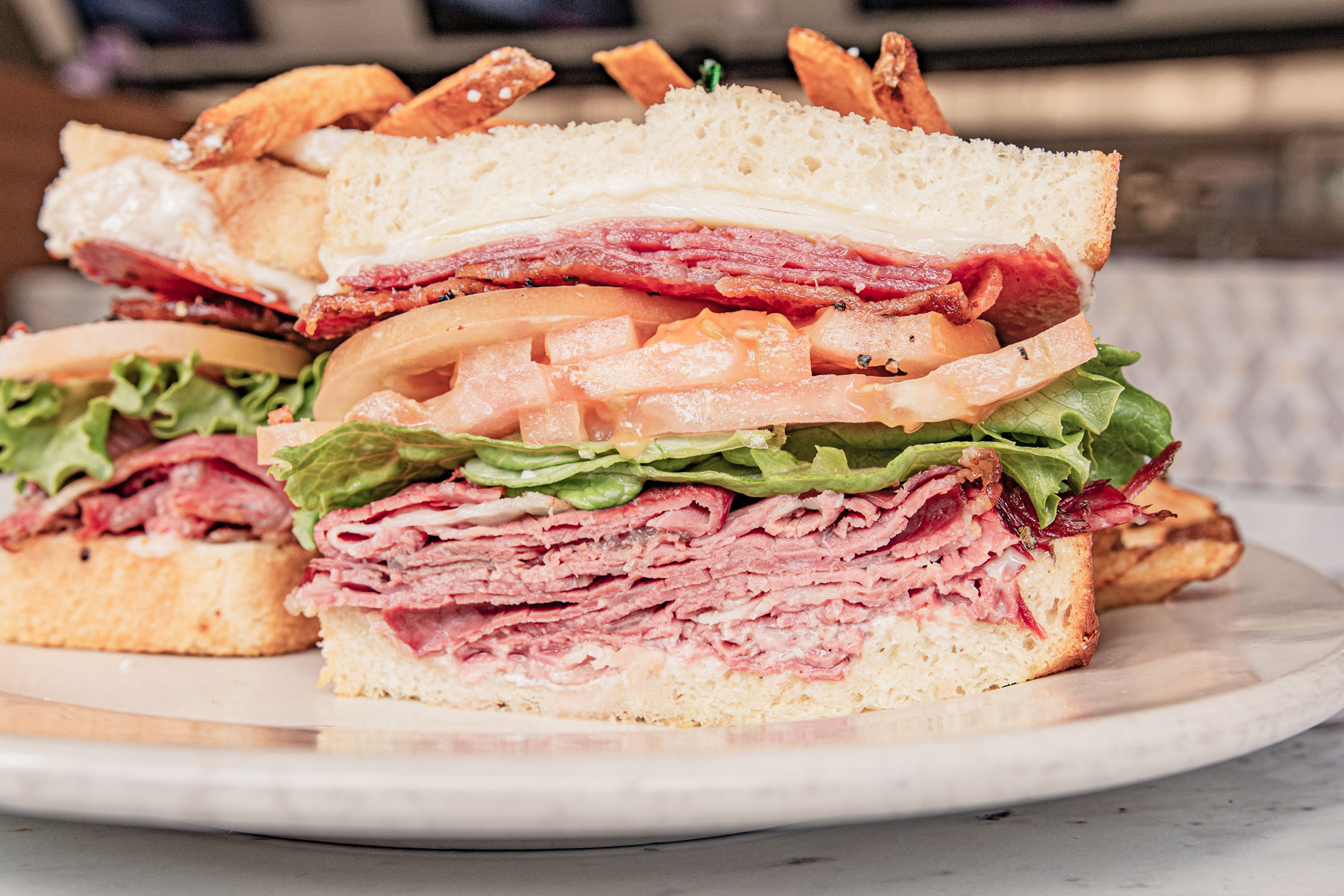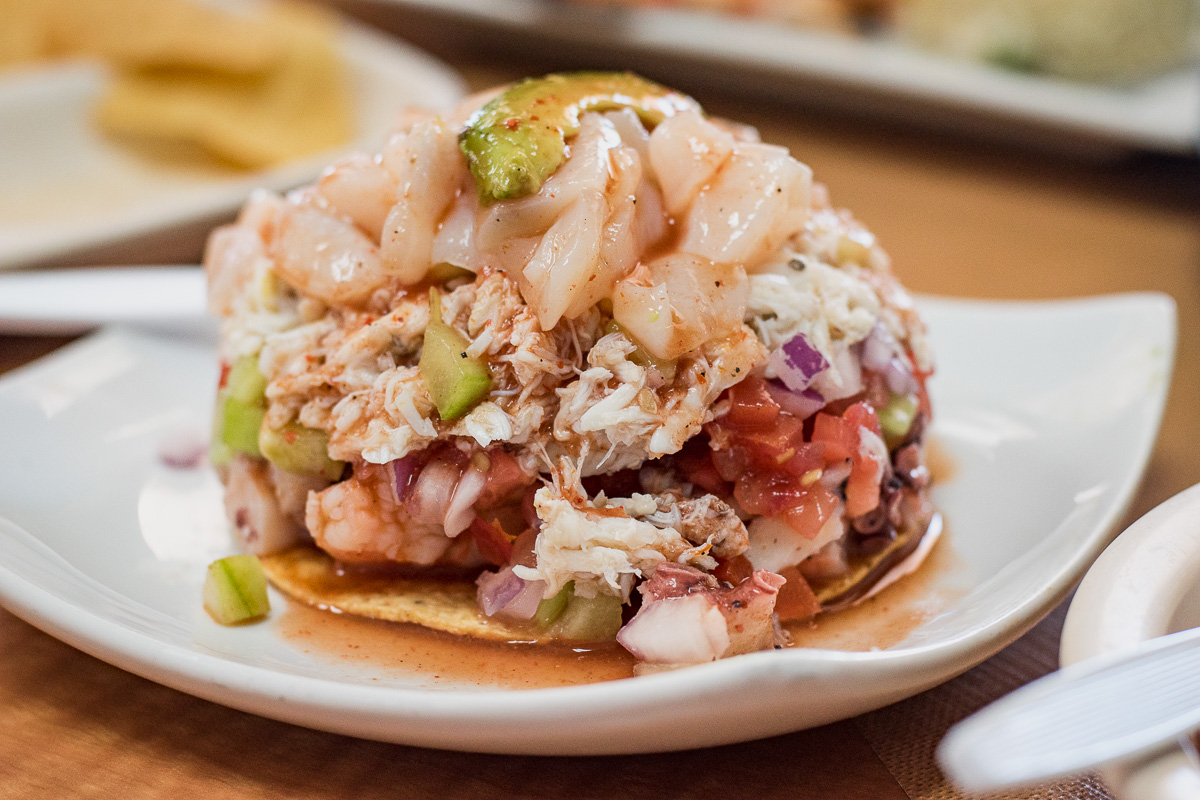
JPS Seafood Market & Restaurant is the quintessential American enterprise success story.
In 2002, Jesus Paredes Sifuentes and Orelia Ortega built an unlikely business. They became fresh fishmongers in the middle of the Arizona desert.
For 10 years, Jesus — his initials are JPS, hence the name of the business — went back and forth from Tucson to Sonora’s Gulf of California to purchase fresh cochito fish and sweet shrimp from the local fisherman. Meanwhile, he supported his wife and three daughters by cooking at a now-defunct Tucson restaurant.
Orelia sold her husband’s imported fresh fish from an ice chest at the Tohono O’odham Swapmeet — which still runs every Saturday in Drexel Heights. According to their daughter, Karina Parades — who now runs the marketplace and restaurant — fresh seafood was a difficult sell. “When my mother made $40, it was a great day,” she said.
Time passed, and the family endeavor grew into a food truck called Mariscos Palapa. They sold a few prepared items at weekend events. Painted on the side of the white truck were the initials “J.P.S.” and the phone number that remains the business’ number to this day.
Fast forward a few more years to May 2012. Karina had graduated from the University of Arizona two years prior and the family had saved enough to open their brick-and-mortar location.
They opened on 12th Street — where it is today, in a strip mall next to a formal gown shop. There were only had four tables and a singular display case for seafood. Mostly a market, they focussed on packaged seafood that they would sell raw or fried. Jesus still went back and forth to Mexico for their supplies.
A little while later they expanded to become a restaurant with a small menu serving ceviche, fish and chips, and fried shrimp. The ceviche was a hit, and the restaurant component grew in tandem with the market.
“Today, more than six years since the actual store opened, JPS’ menu is nothing shy of extensive.”
The business is now half packaged seafood, half restaurant, and still growing. Whether it’s served in the restaurant or packaged, JPS only sells fresh seafood from Sonoran ports — except for a rare specially requested tilapia or the like.
Their seafood is all wild-caught, never farmed. They carry a surprisingly wide range of seasonal items from octopus to blue crab, scallops, oysters, triggerfish, geoduck, conch, and of course their famous regional shrimp in several sizes.
The kitchen will fry seafood for customers or prepare it with advance notice. When possible, Karina or her husband — JPS manager Leonel Nava — provide cooking advice. Karina said she knows how intimidating it can be to prepare unfamiliar seafood dishes and is happy to teach. She sometimes provides recipe cards as well.
Karina wishes she had more display cases but it might be pointless because they sell or distribute their product too fast. “If it comes in on Friday, we don’t keep it in quantity,” Leonel noted. Seafood usually comes in Thursdays and Fridays on ice in specially designed trucks.
In addition to shipping to individuals in places like Philadelphia, Iowa, Texas, and Michigan, they supply seafood to purveyors, mostly in Phoenix and California, as well as to the Taco Fish restaurants in Tucson.
“People from all over the United States get the shrimp delivered,” Leonel added. “It’s a specific craving.”
Because of increasing demand for their product, JPS is now expanding in a new direction. The family is building a distribution facility in Caborca, Sonora, Mexico —a city of about 85,000 people that is situated about 30 minutes inland from each of their seafood ports.
Starting from modest roots, JPS has grown into a binational distributorship with multiple streams of revenue.
Although they are expanding, JPS is driven by relationships with their Tucson neighbors, the fishermen, their family, and their faith. Karina emphasizes that her family business is guided by the biblical verse Jeremiah 17:7, “blessed is the one who trusts in the Lord.”
The family continues to serve their repeat clientele in keeping their prices low. Karina said that she has seen “their exact same shrimp” at another fine foods purveyor in the city for “something like $30 per pound,” and theirs is only $10 per pound. She noted that octopus is “getting expensive,” but they continue to sell it cooked for $11.99 per pound or babies for only $4.99 per pound when they could easily raise the price.
Karina agrees with her parents who want to keep the seafood financially accessible to their customers — mostly Mexican families making minimum wage. This approach is in keeping with their family-oriented philosophy. In fact, they tend to hire family — Leonel’s mother is also one of the cooks.

Dining in is the other option at JPS. The most popular menu item is the Mitotero — a ceviche with shrimp, scallops, octopus, and oysters.
Karina’s favorite dish is the Ahogada, which involves chiltepins. Try the smoked marlin, the shrimp tacos, and get Clamato Juice with your seafood to wash it down.
They do not sell alcohol but welcome large parties any day of the week. Leonel said, “you call and say you have 20 people? Ok, we’ll move the tables!” Family combos and samplers are big sellers, both in the restaurant and to go.
2020 update:
With minor fluctuations in the cooked price of seafood, the price per pound of frozen seafood remains the same. In 2019, the distribution facility in Caborca, Sonora, Mexico was successfully built and is in full operation.
JPS Seafood Market & Restaurant can be found at 5550 S. 12th Ave. and is open every day from 9 a.m. – 6 p.m. For more information, visit jpsseafood.com.